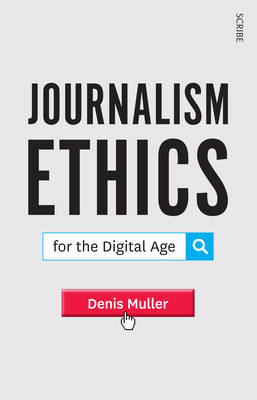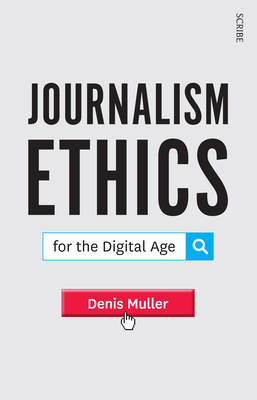
- Afhalen na 1 uur in een winkel met voorraad
- Gratis thuislevering in België vanaf € 30
- Ruim aanbod met 7 miljoen producten
- Afhalen na 1 uur in een winkel met voorraad
- Gratis thuislevering in België vanaf € 30
- Ruim aanbod met 7 miljoen producten
Omschrijving
Journalism is being transformed by the digital revolution. Journalists working for media organisations are having to file and update stories across multiple platforms under increasing time pressures. Meanwhile, anyone with sufficient literacy skills and access to the internet can aspire to practise journalism, and many are doing so.
And yet journalism in any form still depends for its legitimacy on the observance of ethical principles and practices. For example, it has to maintain a commitment to telling the truth, and to minimise deception and betrayal; deal with conflicts of interest; protect sources and their confidences; know how to report on traumatised and vulnerable people; and know when to respect privacy.
Journalism Ethics for the Digital Age covers all these areas and more. It traces the ethics of journalism from their origins in philosophy to the new challenges brought about by digital technology, with practical examples to show how ethical values and principles can play out in the real world. An invaluable tool for ethical decision-making, this is a book for professional journalists and citizen journalists, for students in the disciplines of journalism, media, communications, and applied ethics, and for the engaged reader everywhere.
Specificaties
Betrokkenen
- Auteur(s):
- Uitgeverij:
Inhoud
- Aantal bladzijden:
- 256
- Taal:
- Engels
Eigenschappen
- Productcode (EAN):
- 9781922070951
- Verschijningsdatum:
- 30/06/2014
- Uitvoering:
- Paperback
- Formaat:
- Trade paperback (VS)
- Afmetingen:
- 135 mm x 208 mm
- Gewicht:
- 272 g

Alleen bij Standaard Boekhandel
Beoordelingen
We publiceren alleen reviews die voldoen aan de voorwaarden voor reviews. Bekijk onze voorwaarden voor reviews.











